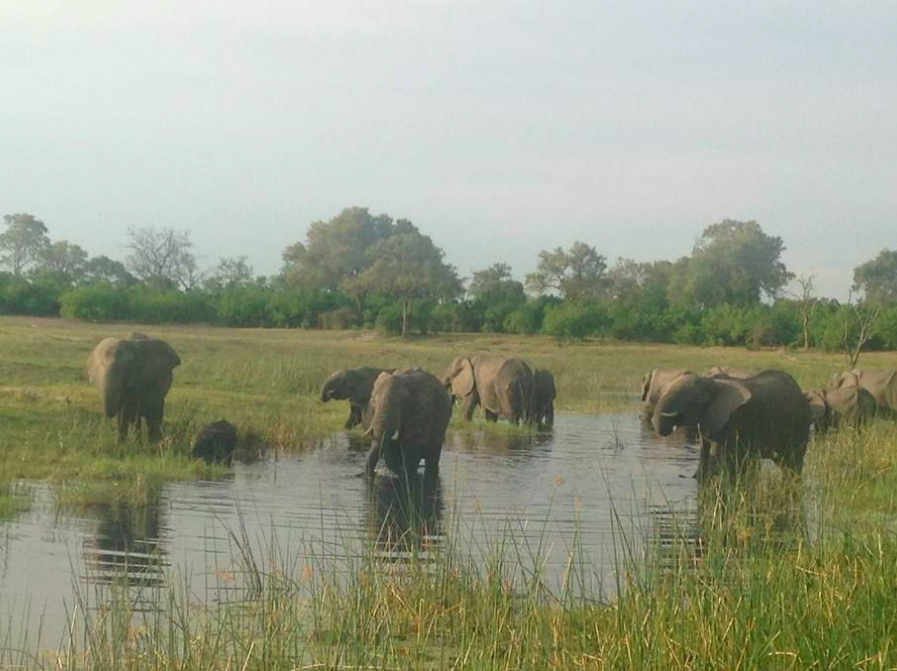To kill or not to kill - Parliament to decide the fate of Botswana's elephants
World's largest elephant population under threat as Botswana Parliament debates hunting ban

Just a few weeks before leaving office former Botswana president Lieutenant General Ian Khama slammed US President Donald Trump for his decision to lift the ban on elephant trophy hunting.
Khama condemned “in the strongest possible terms” the decision by the Trump Administration that the US would start issuing permits for the importation of elephant trophies from six African countries, including Botswana. He accused America of undermining Botswana’s efforts to protect elephants by encouraging poaching, saying Trump is well aware of legislation that prohibits trophy hunting in Botswana. “How do you explain the import of elephant trophies from Botswana while we have a ban on hunting,” Khama said.
But barely three months into his retirement the new administration, under President Mokgweetsi Masisi, has all but validated Trump’s decision to lift the ban on the import of elephant trophies. Recently the Member of Parliament for Maun East (known as ‘The Gateway to the Okavango Delta) presented a motion calling on the government to lift the four year standing ban on hunting.
Presenting his motion, which enjoyed unanimous support from fellow members of parliament, Markus said while the ban was mainly informed by the decline in wildlife numbers at the time, there are new developments and factors that are motivating the proposal to lift the hunting ban.
“The elephant population has increased to an extent that they are now found in areas which were previously not common such as the Central Kalahari Game Reserve and many other villages in Botswana,” Markus said. He said while Botswana is faced with a challenge of wildlife decline, it is not necessarily the case with all the wildlife species in the country. Currently Botswana has approximately 237, 000 elephants as compared to our carrying capacity of 50,000, because there is no hunting of elephants and elephants’ numbers have continued to increase.”
Local farmers have also adopted innovative ways to keep away elephants from their farms and avoid conflict. Farmer Enoch Kegodile explains: “We use ratchets to pull the belt from one gum pole to another, fencing the entire parameter of the farm with just a single 1.7 metre belt”.
He added “elephants are used to breaking their way through everything but with this method there’s nothing to break drown. Just a mysterious belt tied to gum poles meters apart.” He says the method has helped prevent conflict between themselves and wild animals.
If Kegodile’s method of keeping elephants and other wild animals away from the farm is anything to go by, it could come in handy for other farmers like Isiah Moesi. “I was raised in a farming family,” commented Moesi at the Giants Club Summit in Kasane earlier this year.
The Giants Club is an initiative of Space for Giants that unites sitting or former Heads of State of the four countries that represent half of Africa’s remaining elephants: Botswana, Gabon, Kenya, and Uganda.
“As farmers here in Chobe we face a big challenge from the many elephants that live around here. They raid our crops.” The Ngamiland area is home to the largest population of elephants in Africa. “They have made it impossible for us to have a successful harvest,” he told the summit.
Farmers in the region have been at loggerheads with the government regarding what they call little compensation for the damage caused by wild elephants.

This article is reproduced here as part of the Giants Club African Conservation Journalism Fellowships, a programme of the charity Space for Giants and supported by the owner of ESI Media, which includes independent.co.uk. It aims to expand the reach of conservation and environmental journalism in Africa, and bring more African voices into the international conservation debate. Read the original story here

Join our commenting forum
Join thought-provoking conversations, follow other Independent readers and see their replies